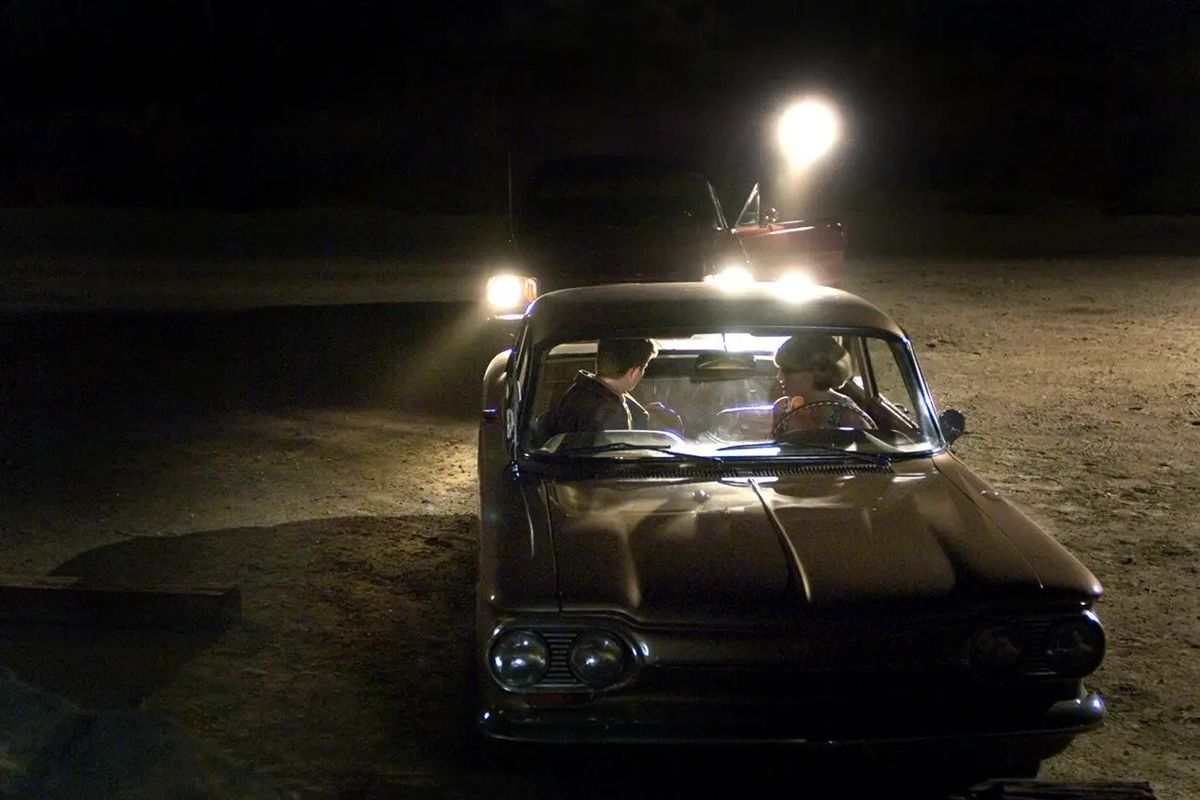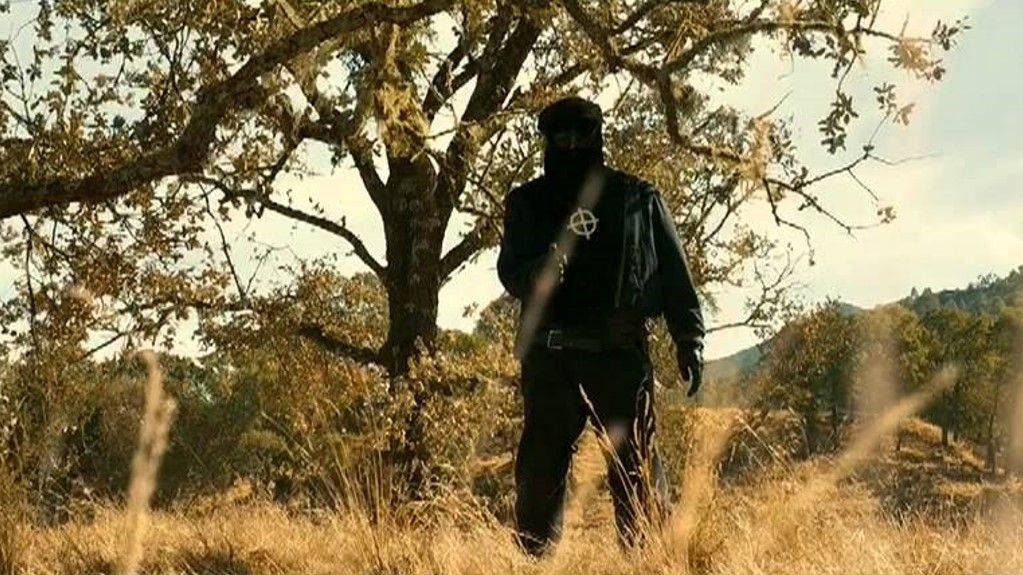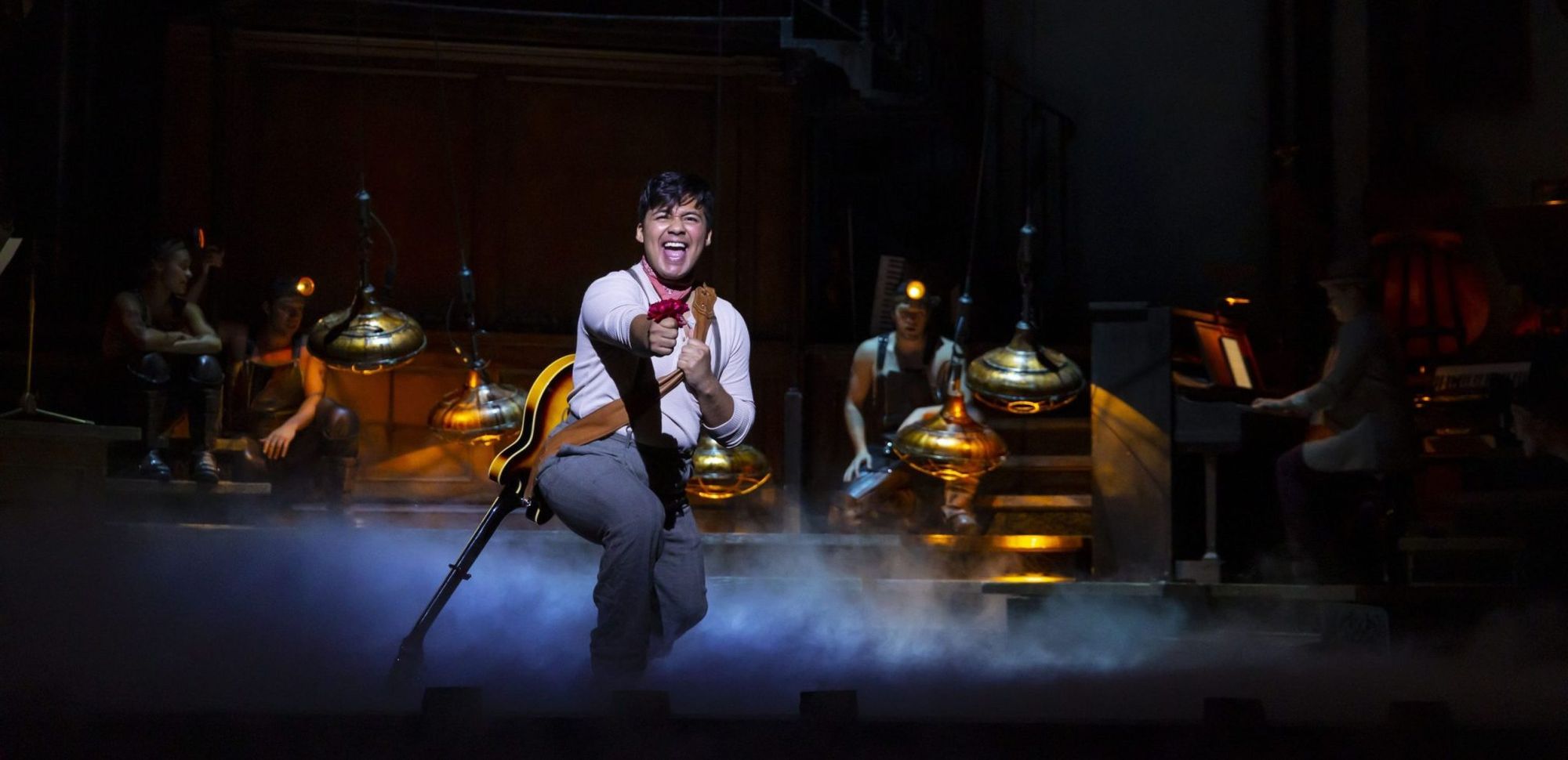How Zodiac perfectly places you in its characters' obsessive worldview
Zodiac is the perfect examination of our true crime obsession. And it came out 16 years ago.

The best scene in David Fincher's Zodiac occurs roughly 15 minutes from its end. Political cartoonist turned Zodiac obsessive Robert Graysmith (Jake Gyllenhaal, looking like he's made out of under-eye bags) believes he has finally solved the case. Almost 10 years after the Zodiac Killer's first murder, Graysmith believes he can definitively point to Arthur Leigh Allen as the culprit. High on his theorizing, Graysmith summons Detective Dave Toschi (Mark Ruffalo) from his bed. The two go to a diner where Graysmith lays out his theory.
The scene (which you can see in part here) is riveting for many reasons. Gyllenhaal plays Graysmith's sleepless mania so very well, and Ruffalo's heavy-sigh cynicism acts as a great counterpoint. Toschi more or less buys Graysmith's case; he also knows none of the evidence would hold up for a second in court. Fincher shoots the scene just about perfectly, alternating between close-ups that emphasize how hollowed out both men look and a wider two-shot that he almost exclusively utilizes to let one of the two men get out of the booth and move around a bit, to give the scene some dynamism.
Also, there's a waitress in this scene. Blink, and you'll miss her.
As the scene begins, to establish that we are in a diner, the waitress leans over the table, clearing dishes. We see her face briefly, but she quickly leaves the frame. Then, a few minutes later, we see her indistinct figure approaching the booth in the background of a close-up on Ruffalo. Her hand suddenly comes in from offscreen to deposit the check on the table. She's not in any other shots.
In the wide shots, other restaurant employees fill in the background of the frame, never drawing our focus. Otherwise, the space seems empty, out of time. It's as if these two men haunt this little diner, ghosts trapped by the unfinished business of the Zodiac murders. Other people don't exist to them except as pieces in this enormous puzzle. That waitress isn't a person, strictly speaking; she's a collection of job functions.
If you watch Zodiac closely, you'll notice other people doing their jobs and living their lives at the edges of the frame. In and of itself, this is not unusual. Few movies will take the time to, say, make sure that a waitress is fully pictured and personified. They might use her almost exactly as Zodiac does: to establish that we are in a restaurant now.
What I think is compelling about how Zodiac films these characters is how frequently Fincher turns them into intrusions from just outside of the frame. Frequently, they just seem to materialize from somewhere, then just as rapidly dematerialize. They're only real for as long as the main characters might happen to notice them. To some degree, this is within the movie's general approach to storytelling. The film is so closely based on actual case files that it will only depict events for which there is an eyewitness. Thus, "we only see the waitress when she enters Graysmith or Toschi's field of vision in some capacity" follows from that idea.
The effect of this device across the whole of the film, however, is a bit chilling. It dehumanizes the characters at the edge of the frame ever so slightly, in a way that gets at Fincher and screenwriter James Vanderbilt's larger points. For a full-blown obsessive like Graysmith, the world maybe starts to look a little like "people I personally know" and "potential Zodiac killers." Everybody who falls outside of those two buckets might as well not exist.
It's difficult to call Zodiac a "scary" movie, though it's one I return to every October. Yes, the murders that occur in the film's first 45 minutes are absolutely terrifying, in part because they so closely adapt what really happened, capturing the terrible randomness of the Zodiac's violence. But after the last of those murders, the rest of the movie is largely devoid of overt violence or menace.
The movie is deeply, deeply unsettling, but in a manner I find oddly comforting. Yes, the world is full of terror and instability, and even the few who would attempt to shine a light on that terror and instability are barely able to illuminate a portion of it. But doesn't it also feel like they're telling you the truth, on some level? The comfort in Zodiac is the comfort of doomerism, the idea that we are completely fucked, and it's better to just admit it. The only people who matter are the monsters in the shadows who've broken the world and the people sitting right in front of you, who might be able to help you shine what meager light you possess into those shadows. Other folks might as well not be there.
Somehow, Zodiac also anticipates the true crime boom of the 2010s. Yes, true crime as a genre existed long before our modern era. Zodiac, after all, is based on two true crime books, written by the real Graysmith. What Zodiac captures that seems prescient is the way that every unsolved crime starts to feel like a puzzle if you look at it long enough, the way that you can begin to obsess over finding order in those puzzles, the way that that obsession can take over your entire life. Zodiac captures the 2010s true crime boom, yes, but it also points the way toward QAnon. When the world is terrifying and random, all you want is to find a way to bring order to that chaos. All you want is to lay all the evidence out on a table and find a clear, consistent story that makes sense of the world. You might lose everything in pursuit of that story, but you will at least have some sense of self-righteousness.

As we all surely know, reality doesn't work like that. Reality is messy and full of loose ends. Should we ever learn who the Zodiac was, we'd surely discover that his story is full of holes and lacks consistent motivation. He is, after all, a human being, no matter how much we might want to reduce him to a bogeyman in a story. The comfort of true crime at its purest is how it sands off those rough edges and tells you a kind of dark fairytale: The world is full of darkness, and those who live in the darkness are of the darkness. Best not to think about it too much more than that.
True crime as a genre – especially in the podcast space – has done a lot in recent years to complicate this worldview. More and more shows are willing to re-examine the ways that true crime can take police narratives at face value, despite how many true crime stories reveal incompetent police work allowing a criminal to initially get away with their crimes. And true crime has always been willing to dig into the ridiculous and seemingly random information at the edges of these cases after perpetrators have been identified. When the perpetrators are still mysteries to us, however, the genre can tilt over into the darker spaces within our psyches.
Somewhere in all of our lizard brains, there is a constant awareness that we might suddenly be in danger when we're just going about our day. We, not being lizards, are able to assuage that fear by reminding ourselves of the unlikelihood of any of us becoming a victim of that sort of violence. But for some of us, that's not enough. The lizard brain needs some sort of acknowledgement that dark things happen, and they could happen to us.
What Zodiac captures better than any other true-crime thing – and what makes it such a potent examination of true-crime brain – is how immersing yourself in this kind of worldview so completely can make you utterly incapable of human empathy and even love. Graysmith loses everything due to his obsession, including a marriage, and in another bravura sequence, he finds himself in the basement of a very unsettling movie buff who probably isn't the Zodiac killer but might be the Zodiac killer, and oh God, oh God, get out the door. To become convinced the world is solely full of dark and terrible things is to gradually lose the parts of yourself that fight to remain human. It is to give in entirely to fear and suspicion. It is to become convinced that the world is mostly capable of manufacturing violence, pain, and fear. It is to lose sight of people entirely.
The kind of light dehumanization that peppers the edges of Zodiac's frames is something we all practice from time to time. When you are engaged in a really intense conversation in a restaurant, the server might become an abstraction to you. You're aware they're there, but you're also really locked in on what you and your friend are chatting about. This filtering of the world is normal, even healthy. Our brains have to shut out some information to make sense of what's important to us in that moment.
Yet watch Zodiac again with an eye toward how Fincher utilizes this technique. The longer the movie goes on, the more other people only seem to exist as disconnected blobs in the background somewhere. The second you start to really look at them, you might start to think they mean to do something horrible to you. So you learn not to see them, and the world becomes a collection of scary stories waiting to happen.
You are surrounded by monsters who look like people, and only you understand the dark, quiet loneliness of that. But that loneliness eventually feels like its own reward because it starts to feel like the truth. You are alone. Isn't that wonderful?
Programming note: Yes, I was going to resume Kirsten & Natalie this week, but then I realized that a.) this is the last free newsletter before Halloween, which made me want to write about something at least a little scary, and b.) the next free newsletter publishes Nov. 1, which is ideal for V for Vendetta purposes. So you'll see our girls then!
Consider becoming a paid subscriber: For as little as $5 a month, you can support this newsletter and help keep it rolling. Paid subscribers get a weekly post on Fridays, access to comments, access to my Andor recaps, and a link to the Episodes Discord server. There will be some other fun treats along the way. Click the button to learn more!

Three things: Here's what I'm into right now!
- I saw the latest touring cast of Hadestown a few nights ago for their last performance at the Ahmanson here in LA. It's the fourth time I've seen the show, twice in New York and twice in LA, and I like this current touring cast a whole lot, especially J. Antonio Rodriguez as Orpheus and Amaya Braganza as Eurydice. I love how endlessly adaptable and open to interpretation Hadestown is and how every actor I've seen in it has tried different things with the roles, sometimes wildly different things. It also remains one of the few art things in recent memory that seems to speak to something ineffable and sad at the core of our current world and then offer something like hope for a way forward. I love this show, and I hope I get to see it a billion times more. (I need to get back to New York to see Lillias White before she leaves!)
- Matt Singer's Opposable Thumbs: How Siskel & Ebert Changed Movies Forever, out next week, is a terrific read, especially if you're like me and spent much of your childhood watching Siskel & Ebert. Singer ably dissects how two rivals came to have a deep, abiding friendship that remained incredibly contentious, but he also has his eye on the ways that Siskel & Ebert presaged a whole host of programs where two people yell at each other about something or another. And the book features a pretty great dissection of how media consolidation ruins things. It's a great read, and I hope you'll check it out when it's in the world.
- I haven't listened to the Zodiac episode of Blank Check with Griffin and David yet, but I would be remiss to have written this newsletter and not linked to it. The guest is director Leslye Headland! It's almost certainly great!
This week's reading music: "Hurdy Gurdy Man" by Donovan
Next time: Kirsten & Natalie returns! For real this time!
The free edition of Episodes is published every other Wednesday, and the subscriber-supported edition of Episodes is published every Friday. It's written by Emily St. James, who covers whatever she feels like writing about, but if you have suggested topics, please reply to the email version of this newsletter or comment (if you are a paid subscriber).




